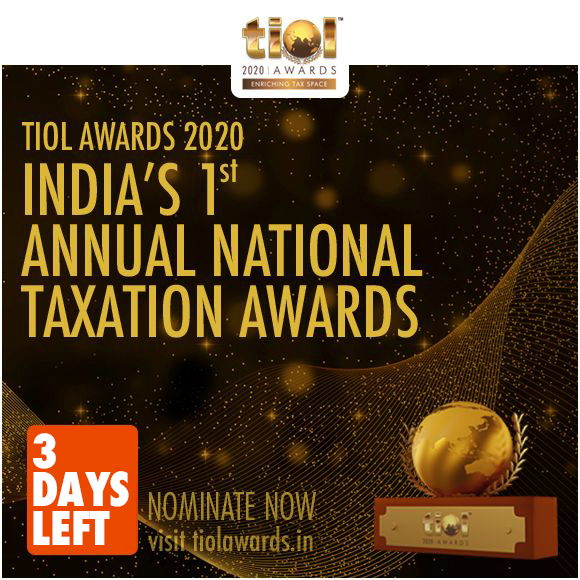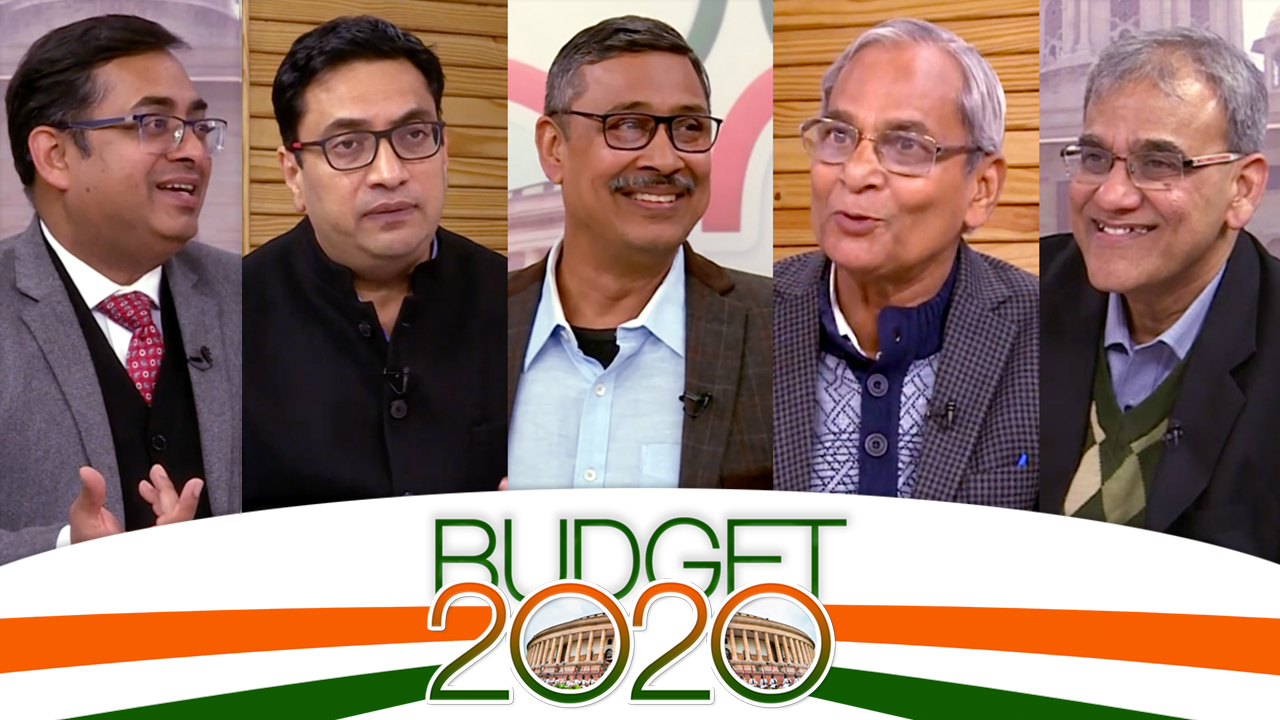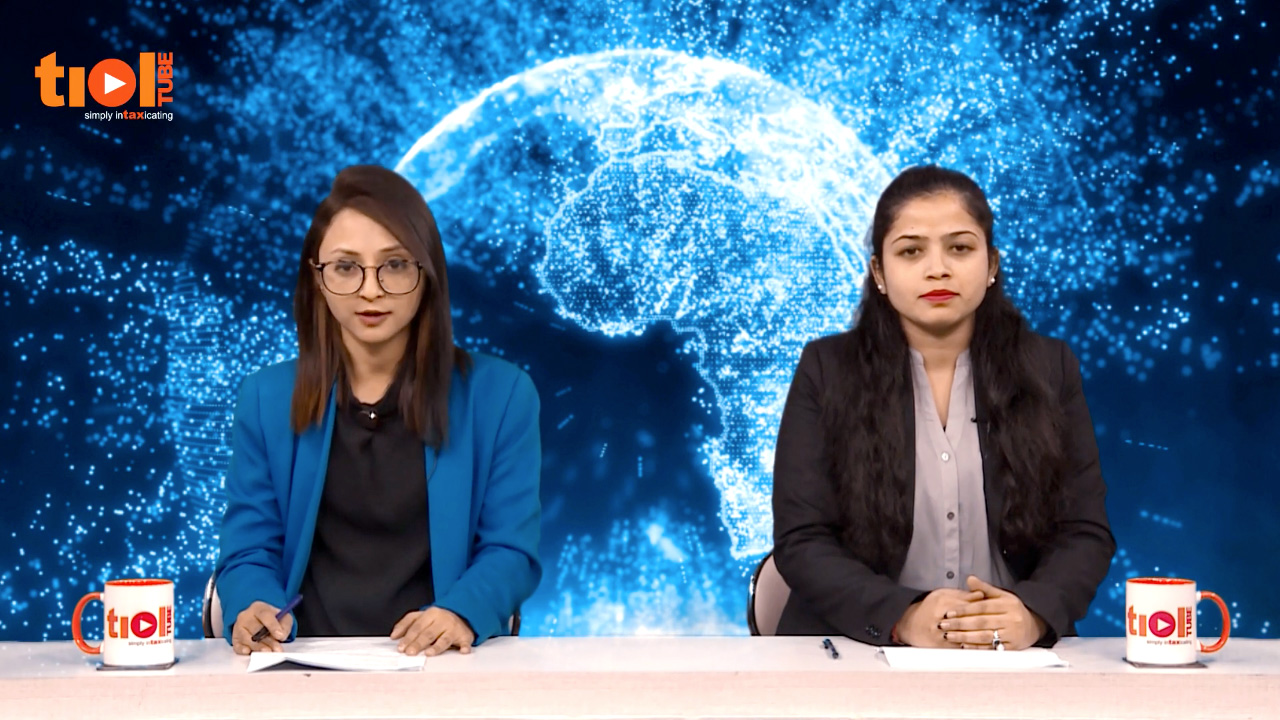|
SERVICE TAX
CBRE South Asia Pvt Ltd Vs CCE & ST
ST - The assessee-company is engaged in facility management services in relatoon to management and maintenance - Against the professional fees charged for these services, the assessee discharged service tax liability - However, it did not pay any tax in respect of expenses incurred for services in relation to horticulture, housekeeping and cleaning, rent a cab operator, supply of manpower, maintenance of immovable property, security & pest control, as the assessee claimed them to be reimbursements or out of pocket expenses - Two SCNs were issued to the assessee - The first SCN mentioned that the assessee had not paid service tax on services related to horticulture, housekeeping and cleaning, pest control, supply of manpower, rent-a-cab, maintenance of immovable property, even though they were part and parcel on the activities relating to Real Estate Agent Service - The SCN also stated that the assessee had been availing credit but did not maintain a separate account for availment and utilisation of credit for taxable and exempted services, as per Rule 6 of CCR 2004 - Hence the assessee could not have utilised more than 20% of the service tax payable on Real Estate Agent service but had utilised more than 20%, resulting in short payment of service tax - The second SCN mentioned that the assessee was providing security to clients through security agencie in addition to the Real Estate Agent Services on which it had not paid service tax and that the assessee was also providing rent-a-cab service to clients through other travel agencies & that no service tax was paid - Hence the other SCN proposed to raise duty demand as well - On adjudication, the duty demands raised were confirmed with interest & amounts already paid were appropriated - Hence the present appeal.
Held - In keeping with the verdict of the Apex Court in Intercontinental Consultancy and Technocrafts (P) Ltd. vs. Union of India, wherein it was held that held that the value of material which is supplied free by the service recipient cannot be treated as "gross amount charged" as that is not a "consideration" for rendering the service, no service tax can be levied in respect of the services pertaining to Horticulture, Housekeeping & Cleaning, Supply of Manpower and Pest control - Regarding the expenses related to maintenance of immovable property servces, the O-i-O raised duty demand under Real Estate Consultant Service - The assessee claimed that such service became taxable w.e.f. 16.06.2005 and since there was no amendment in such service, the same could not be made taxable prior to 16.06.2005 - Such submissions of the assessee are well-founded and the demand confirmed in this regard is not tenable - Moreover, regarding the issue of reversal of cenvat credit, the assessee claimed to have maintained separate books of accounts and to not have availed credit in excess of 20% of the service tax payable - Such contentions were not looked into by the adjudicating authority - Hence the matter warrants remand in this regard - The demands for interest and penalty too must be considered afresh, in light of such circumstances: CESTAT
- Assessee's appeal partly allowed: DELHI CESTAT
CENTRAL EXCISE
2020-TIOL-196-CESTAT-AHM
Ess Bee Techno Cast Pvt Ltd Vs CCE
CX- Appellants are engaged in the manufacture of Alloy Steel Castings - they were issued SCNs, inter alia ,alleging that (i) they have availed credit on the basis of forged invoices issued by M/s.H.B.Metals(ii) the dealer has supplied SS Coils, MS Flats, etc. whereas the description of goods in invoice are SS Circle, MS Rounds and bars etc. falling under Chapter 72 which are not their inputs - it was proposed to deny the credit availed by the appellants - demands confirmed, hence appeal before CESTAT.
Held: Appellants have shown purchase of goods in their statutory records and account books and the transactions stand recorded therein - further no dispute has been raised about the transportation of said goods to the appellant units - the appellants have also shown production of goods from the purchased goods and it stands recorded in books of accounts as well as statutory records - no evidence of falsification of statutory or accounts is on record - also, there is no dispute about the consumption of impugned material and clearance of finished goods manufactured - even if it is assumed that the dealer's records does not show the purchase of impugned goods, but the fact remains that the appellants' records are showing receipt of goods - only on the basis of statements, the CENVAT cannot be denied when the records are not held to be untrue or falsified -there are no investigations to the effect that the appellants purchased goods from elsewhere to the extent of quantity of goods allegedly not received by them - also, there is no evidence to show that the consideration paid for the appellants' purchase and through banking channels towards alleged fictitious purchase and cash was received back by the appellants - as per the facts and circumstances, the revenue could not establish the fraudulent availment of cenvat credit beyond doubt - thus, the impugned orders are set aside and the appeals allowed : CESTAT [para4, 5]
- Appeals allowed: AHMEDABAD CESTAT
Cable Corporation Of India Ltd Vs CCE & C
CX- The appellants are engaged in the manufacture of cables and have supplied them to Public Funded Research Institutions under notification 10/1997-CE dated 1.3.1997 (Sl.No.2) and to Surat Municipal Corporation for use in water treatment plants availing notification 6/2006-CE dated 1.3.2006 (Sl.No.7) - Department vide SCN dated 6.10.2010 proposed to deny the exemption availed under both the notifications alleging that the wires and cables in running length could not be considered as parts or equipment or accessories of any machines and/or water treatment plant – demand confirmed, equivalent penalty imposed – the same was upheld by the impugned order, hence appeal before CESTAT.
Held: Necessary certificates as required by the notification no.10/97-CE dated 10.3.1997 and notification no.6/2006-CE dated 1.3.2006 have been issued by the Competent Authorities - the issue is no longer res Integra - Tribunal has consistently held that when a certificate was issued by the competent authority regarding specific end-use of goods as required under notification, the exemption cannot be denied – the Tribunal in the case of Havells India Ltd. - 2017-TIOL-1908-CESTAT-DEL held that cables supplied to Research Institutions are eligible for exemption under notification no.10/1997-CE dated 1.3.1997 –and has also held that cables supplied to Water Supply/Treatment plant are eligible for exemption under relevant notifications -in view of the ratio of the decisions, the appellants are eligible to avail the notifications 10/97-CX and 6/2006-CX in view of the certificates issued by the competent authority -having held that the appellants are eligible for the exemption claim, on merits, the Bench is not going into the other issues like limitation etc. - in view of the above, the appeal is allowed : CESTAT [para 5, 6]
- Appeal allowed: MUMBAI CESTAT
CUSTOMS
2020-TIOL-194-CESTAT-MUM Dhananjay Balchandra Desai Vs CC
Cus- The appellant company filed two Bills of Entry for clearance of cosmetic products, perfumes and deodorants - after investigation, the department concluded that the goods were mis-declared in terms of quantity, value and non-compliance of the CDSCO norms and accordingly, the goods were undervalued with an intent to evade payment of customs duty -vide the impugned order, the declared value of the subject goods at Rs.1.08 crore was enhanced and re-determined at Rs.1.46 crore - cosmetics valued at Rs.1.25 crorewas absolutely confiscated under section 111(d) ibid of the Customs Act, 1962 [Act] on the ground that the said goods were attempted to be imported without any valid CDSCO Certificate, and thus, the provisions of Drug & Cosmetics Act, 1940 [Cosmetics Act] have been violated - the goods valued at Rs.21.15 lakhs were allowed for redemption on payment of redemption fine of Rs.2.5 lakh - penalty of Rs.35 lakhs was imposed on the appellant company under section 112(a) of the Act - penalties of Rs.10 lakhs each under sections 112(a) and 114AA of the Act was imposed on the other appellant ShriDhananjayBalchandra Desai - appeal to CESTAT.
Held: It is an admitted fact on record that the subject goods were imported, resorting to mis-declaration in terms of quantity, value and also most of the goods were not in conformity with the CDSCO Certificate - further, the appellant had not submitted any plausible evidence in disproving the correctness of the examination report furnished by the department - the rejection of the declared value by resorting to the provisions of rule 12 of the Customs Valuation Rules [Rules] and re-determination of the same under rule 9 of the Rules read with section 14 of the Act is in conformity with the statutory provisions - since the appellant did not import perfumes under the cover of CDSCO certificate, the provisions of Cosmetics Act have been violated - thus, the goods are liable for absolute confiscation under the provisions of section 111(d) of the Act -therefore, no infirmity found in the impugned order, insofar as it has ordered for absolute confiscation of goods-with regard to the remaining confiscated goods, the supplier had confirmed that due to cross stuffing, the goods were wrongly supplied to the appellant company - further, it is also evident from the impugned order that the appellant company had made the request to overseas supplier for re-exportation of the goods -thus, under the circumstances, the quantum of redemption fine and penalty imposed on the appellant company can be reduced in the interest of justice -no justification found to uphold the impugned order to such extent inasmuch as the ingredients mentioned in sections 112(a) and 114AA of the Act have not been satisfied in support of imposition of penalties on the other appellant Shri Desai -in view of the above, the appeal is disposed of in the following terms : (a) the impugned order is sustained as far as goods are held liable for absolute confiscation (b) the impugned order sustains, so far as it has re-determined the assessable value under rule 9 of the Rulesread with section 14 of the Act and absolutely confiscated the goods under section 111(d) of the Act(c) the impugned order is modified, as far as it relates to goods held to be redeemable, quantum of redemption fine is reduced to Rs.25,000/-(d) the impugned order is modified, in reducing imposition of penalty under section 112(a) of the Act on the appellant company to Rs.1 lakh (e) the impugned order, in so far as it has imposed penalties on Shri Desai, Director of the appellant company under sections 112(a) and 114AA of the Act are set aside and the appeal to such extent is allowed in favour of the said appellant : CESTAT [para6, 8.3, 9, 10, 12]
- Appeals disposed of: MUMBAI CESTAT
2020-TIOL-193-CESTAT-MUM
Colorcon Asia Pvt Ltd Vs CC
Cus - Commissioner (Appeals) rejected the appellant's appeal without going into the merits of the matter only on the ground that there is no order of assessment by the proper officer of Customs as they were RMS facilitated bills of entry and goods were cleared on the self assessment done by the appellant and, therefore, the appeal cannot be sustained under section 128 of the Customs Act - appeal to CESTAT.
Held: The law laid down by the Supreme Court in the matter of ITC Ltd. - 2019-TIOL-418-SC-CUS-LB squarely applies on the facts of the case - Supreme Court has observed that the order of self-assessment is an order of assessment as per section 2(2) of the Customs Act, as such, it is appealable in case any person is aggrieved by it - Section 128 has not provided for an appeal against a speaking order but against "any order", which is of wide amplitude - the language of section 128 is clear and unambiguous and the reasoning given by the Commissioner that since there is no order or decision of any Customs officer, the appeal filed by the appellant cannot be sustained, is erroneous and contrary to law - the Commissioner ought to have decided the appeal on merits - therefore, without going into the merits of the matter, the impugned order is set aside and matter remanded back to the Commissioner: CESTAT [para 3, 4]
- Matter remanded: MUMBAI CESTAT
|
|









